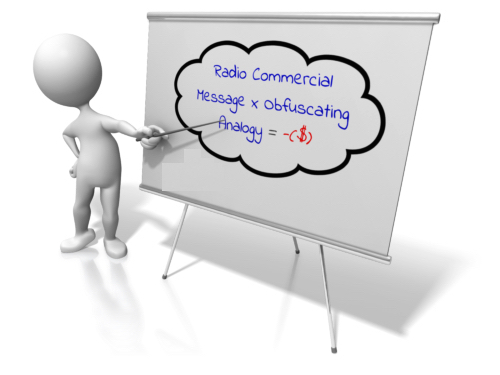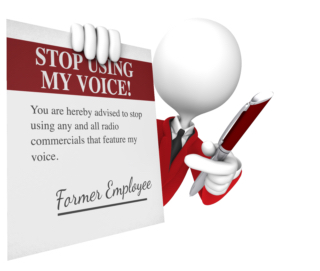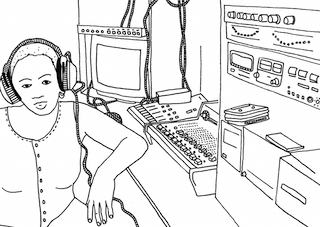 I’ve searched and searched, and I can’t find the FTC or FCC regulation requiring all cable TV companies to produce 100% content-free radio advertising.
I’ve searched and searched, and I can’t find the FTC or FCC regulation requiring all cable TV companies to produce 100% content-free radio advertising.
Listen to this radio commercial, and you’ll see what I mean.
Okay, let’s examine what we just heard.
Meaningless Clichés
It’s a new day. A fresh start.
Oh! I thought today was a rerun. Thanks for the heads up.
Welcome to America’s fastest-growing TV, Internet and voice provider.
So…It’s not America’s most popular TV, Internet and voice provider.
(In fairness, the closest a company could be to “America’s most popular TV, Internet and provider” would be “America’s least hated TV, Internet and provider.)”
“Fastest growing” is a face-saving way of saying, “Not the biggest.”
If I owned a TV/Internet/voice provider company that had one customer yesterday but has two today, mine would be America’s fastest-growing TV, Internet and voice provider.
Just Plain Meaningless
Redefining what a cable company can be, with promises to make and promises to keep.
I’m pretty sure that’s what Robert Frost was aiming for in “Stopping by the Woods on a Snowy Evening.”
If only he’d had the assistance of whatever advertising agency created this radio slop.
With over 90,000 employees working hard every day to earn your business.
1. I didn’t realize consumers judge a cable company by its number of it employees.
2. “And every one of them unavailable at the moment, but your call is important to them so please listen to this delightful music for a few hours.”
Internet speeds fast enough to get you where you want to go instantly.
Really?
Actually, that’s probably true…as long as you don’t slow things down by using some sort of hardware (computer, cable modem, etc.).
What Every Other Cable Company Says, Too
Crystal-clear HD picture and sound
That really sets Spectrum apart from their competitors, who advertise a hard-to-see picture and static-laden sound.
Thousands of on-demand choices
1. …mostly devoted to “real housewives” of thousands of different cities.
2. Of their competitors who offer on-demand programming, how many offer fewer than “thousands”?
Delivered over the most advanced, fiber rich digital network in the nation.
That “fiber rich digital network” certainly differentiates Spectrum apart from its competitors, all of whom apparently still use analog networks and copper wiring.
Gives Two Calls-to-Action
This is a “branding” ad.
Not a very good one, but its goal is to make people realize, “Time-Warner Cable now is Spectrum.”
The desire to get consumers to think of the company as “Spectrum” may or may not be related to the fact that Time-Warner Cable has the lowest customer satisfaction level of any business in America.
Tell people that over and over again, and eventually “Time-Warner Cable” will recede into the consumers’ repository of “Oh, yeah, they were awful” memories.
(Remember MCI? Worldcom? Awful, weren’t they? Now we have good ol’, friendly “Verizon,” which has only happy customers and a shiny bright reputation.)
After 55 seconds of “branding,” why do they give a Call to Action?
Why do they give two Calls to Action (call them or “visit” them online “for more details”)?
(via telephone) “Hello, Spectrum? Do you really have over 90,000 employees?
(via online visit) “Okay, I’m here. Where’s that list of the names of their 90,000+ employees?”


 A Loyal Reader Writes:
A Loyal Reader Writes:

